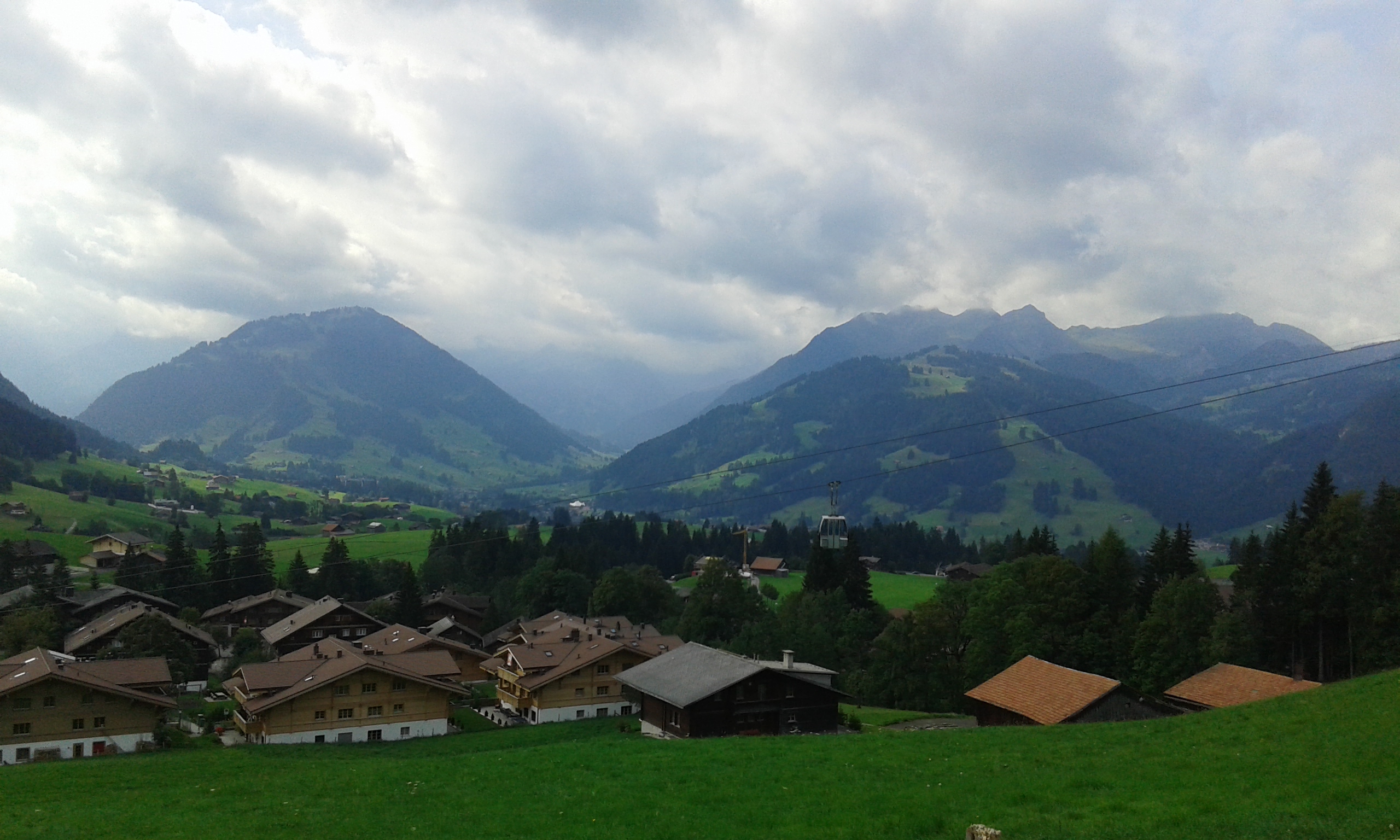Pre-departure:
With this being my first time overseas, it helped a lot having friends who have been overseas who could advise me on more cost-effective options, what the best travelling options are, how and what to pack, etc. The following list contains a few notes that I made in preparation for this trip:
- With reference to applying for a visa, have all the information requested for at hand, otherwise they will deny the visa application. Even though it was not on the list of information required by the senate, I was asked after applying for my visa to submit train/bus fares.
- When booking accommodation, make sure of the cancellation policy, cancellation fees can work out quite expensive.
- Plan how you are going to have access to money overseas. Go to your bank and ask for information pertaining to cash withdrawals, transactions, etc. You will probably have to make the withdrawal amount higher. Applying for a Bidvest card is another option (remember to bring proof of accommodation, original passport, ID and air ticket information).
- If you would like to exchange money in South Africa, do so in advance as some of the currencies have to be ordered. When exchanging money overseas, bring along new South African notes – when I wanted to exchange South African notes in Dubai, they only accepted the new South African notes and not the older notes we still use.
- It sometimes works out more cost-effective to book your transport online. Look for saving or discount options when booking. When booking transport online, search for stations or stop-offs that end close to your accommodation.
- Look at the weather online so that you can see what clothing to pack in (i.e. summer or winter clothing). Pack in clothing that mixes and matches well so that you do not have to pack in as much. Also, wear your heaviest shoes/clothing when taking the flight.
- If you are taking valuable items overseas and returning with them, declare the items at SARS (have serial numbers available). I had musical instruments that I was taking overseas and in order to avoid being taxed on them when returning to South Africa, I had to declare them at the airport before departure.
- The seats in the plane are not that comfortable to sleep in, so try and have a proper neck rest so that you can try and get some rest. Have a light toiletry bag in your hand luggage to freshen up (do not include flammable items such as deodorant cans and containers with too many liquids).
- One tends to get dehydrated on the flight so drink enough liquids.
- When purchasing a plug adaptor, make sure that it is one specifically for the country you will be travelling to.
My experience at the Gstaad Baroque Academy:
The Gstaad Baroque Academy was a week long course (27/09 – 03/09/2016) specifically for recorder players who would receive various masterclasses and performance opportunities. Focus was placed on performance practice, technique as well as stage performance.
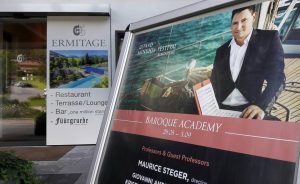
Each candidate had two public masterclasses with Professor Maurice Steger and a lesson with Erik Bosgraaf. The candidates were divided into groups to have group discussions with Maurice Steger and Sabrine Frey. Additional classes by senior participants at the course were also arranged, mostly covering recorder technique. Classes took place at Hotel Ermitage (Schönried, Switzerland) and the participants stayed in Chalet Sandra, a five minute walk from the hotel.
Participants were also given the opportunity to have lessons in supplementary workshops by Daniele Caminiti (theorbo) who focused mainly on Italian music and Jermaine Sprosse (harpsichord) who focused mainly on 18th century German Baroque. The internationally acclaimed conductor and recorder player, Giovanni Antonini also gave masterclasses to three selected students.
The same day, we took the train to Gstaad to watch him conduct Beethoven’s piano concerto no. 2 op. 19 in B-flat major (performed by the South African born pianist, Kristian Bezuidenhout) as well as Beethoven’s ninth symphony. The following day, three students were selected to have a workshop with Kristian Bezuidenhout.
Those not selected to perform in the masterclasses with Antonini and Bezuidenhout were given the opportunity to perform in two separate concerts. The first concert was held at Hotel Ermitage and the second concert for the more advanced students was held on Saturday at the 11th century Rougemont Church (Switzerland). After the concert at Rougemont, the participants were all handed a rose and certificate on completion of the course.
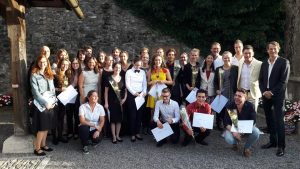
Attending the course was challenging and inspiring. For the first time I was in an environment with participants of different nationalities playing recorder on a very high level. I learnt a tremendous amount from each of the masterclasses I performed in and also observed. I also asked for a separate lesson with Sabrina Frey to ask her questions on technique.
My personal standards have reached a new dimension – I have the desire to experiment more, override poor technique habits and perform in a way that I actually reach my audience. This course has provided me the opportunity to experience different learning angles and ideas.
I not only learnt more about music – I learnt more about different cultures, making friends from Austria, France, Germany, Israel, Spain and the UK. With most of the participants speaking German, my German speaking ability has most certainly improved! While the schedule was quite packed, we were also provided with time for leisure. The best conversations were when we breakfasted at Hotel Ermitage and had lunch and supper at Chalet Sandra. I was also able to sightsee in beautiful Switzerland with friends, taking a walk up a hill, cycling down to a neighbouring town (Saanen) and having a relaxing hour at the Hotel Ermitage spa.
On return to Stellenbosch:
Initially when I returned, I was slightly overwhelmed by all that I had learnt during the Gstaad Baroque Academy. As part of my BMus course at Stellenbosch University, I had to prepare for a solo performance examination in just over a month’s time and I wanted to be able to apply all that I had learnt.
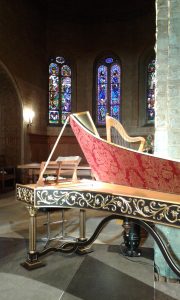
The reality is, however, that certain aspects require more time and practice to realise. There were times that I felt frustrated, because the technique I was trying to correct did not seem to work and I could not meet up with the lecturers at the course to ask for their assistance. I also found myself feeling frustrated with living in South Africa, being isolated from a wealth of expertise that many of my European colleagues have access to on a daily/monthly basis.
However, that month in preparation for my exam after the course proved to be equally valuable in its own way. I was in a learning curve that many South African musicians undergo as they take what they learnt overseas and apply that knowledge back home. It was a challenging time, but the hard work paid off. I performed my performance exam and I know that it is the best performance I have given. My panel, lecturer and friends noticed a difference in the way that I performed, stating that there was substance in my playing and that they really enjoyed my performance.
I can attribute a lot of my improvement to the content of the course; however, it is also very important to bear in mind that shared knowledge and expertise is futile if one does not endeavour to apply what was taught. In hindsight, I realise that I was mistaken in thinking that one can only study in Europe to be successful as it holds all the expertise necessary to succeed as a musician.
I have listened to a number of musicians who studied overseas and have performed a recital or given master classes in South Africa. Many times, I have been in awe, but also more often than expected I have left feeling disappointed. This reminded me that tuition in Europe does not immediately secure one’s success. There are a number of South African musicians who have made flourishing careers overseas and in South Africa. I have a newfound respect for these performers as they have worked very hard to apply what they have learned from lecturers/teachers in South Africa and overseas.
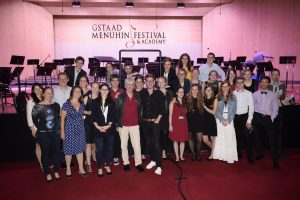
Having gone to the Gstaad Baroque Academy has most certainly been one of the best experiences in my career. It has changed my plans as I would like to study overseas. At the same time, I am so glad that I had my tuition in South Africa as I have learnt to play my instrument here, received instruction on a tertiary level and most importantly – I have learnt the important values of perseverance and hard work to live my passion – music.

